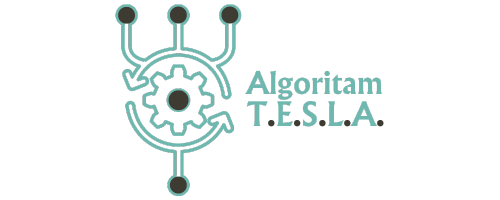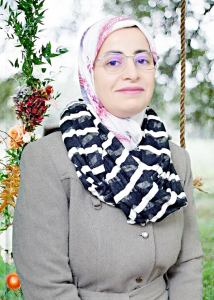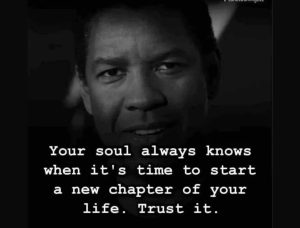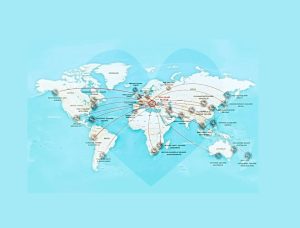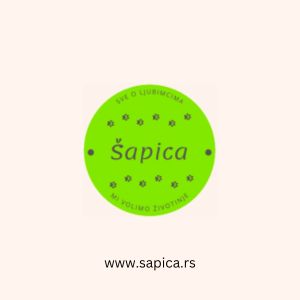DR DJOUHER GAAD
Dr Djouher Gaad is a plant breeder who earned her PhD from the National Higher School of Agriculture in 2018. Currently serving as a dedicated researcher at the Research Center for Biotechnology (CRBt), Constantine, Algeria. Her research interests focus on revolving and enhancing drought tolerance in food legume crops, a pivotal endeavour given the increasing challenges posed by climate change. In addition to her work on drought tolerance, she is also involved in the micropropagation of Stevia rebaudiana, a promising medicinal and aromatic plant with great potential for food industry.
“Perseverance and Hard Work Are the Keys to Success”
Q: Tell us a few things about you! Your background, your childhood and early beginnings!
I was born in a small village in Algeria, nestled amidst breathtaking mountain scenery. Despite the limited resources, the people there were determined to improve their lives. My parents, especially my mother, were hard-working and perseverant, and they taught me these values from a young age. They faced financial challenges, but they never wavered in their belief that education was the key to a brighter future. My childhood was not particularly happy, but it was also not without challenges. The school was five kilometres away and I had to walk that distance every day, braving harsh Winters that often affected my health. Along the way, I sometimes encountered individuals who sought to take our school supplies and harassed us. At the age of ten, I was diagnosed with a chronic disease that significantly impacted my quality of life and self-confidence. Despite these obstacles, I refused to let my circumstances define me. I continued my journey with unwavering determination, achieving a high level of education. Today, I am a researcher in the field of agriculture, with dreams of working in international institutions. I want to share my story to inspire other women. I want to show them that life rarely gives us what we want, but with hope and hard work, we can achieve our goals. My journey is proof of the power of resilience and the belief that no obstacle is insurmountable.
Q: What are some of the key challenges in your society currently?
The most challenging aspect is being a woman in a society where opportunities for women are scarce and often placed last. In addition to gender issues, my society struggles with bureaucracy and a job market influenced more by family connections than by qualifications. It took me a long time to find a job, as access to work often depended on one’s family position rather than merit.
Q: Share with us some of the hurdles that you had to overcome in your life so far? How did you handle them?
My life has been marked by numerous hurdles, each one a challenge that has shaped my resilience and determination. From the first day of my birth, I faced challenges. I was unresponsive, and my grandparents, thinking I was dead, took me to the grave, only for me to miraculously revive. I believe this happened for a reason, setting the stage for a life of overcoming obstacles. At the age of four, I narrowly escaped an attempted assault, an experience that left an indelible mark on my young psyche. At six, my father left me alone at school, instilling in me a deep-seated fear of abandonment that lingers to this day. These early experiences of vulnerability and fear were significant hurdles that I had to overcome. At ten, I was diagnosed with a chronic illness that significantly impacted my quality of life and self-confidence. Despite these challenges, I persevered, driven by a determination to not let my illness define me. Even in my professional life, I faced significant obstacles. My skills and competencies were not valued, and I often felt overlooked and undervalued in my job. Instead of being discouraged, I continued to persevere, always seeking better opportunities where my abilities would be recognised and appreciated.
Q: Why is the role of a mentor important for you?
A mentor has been crucial to me for several reasons. Having a mentor provides guidance, helping me to improve my quality of life and to understand myself better. Without guidance, life can sometimes be a missed opportunity and prevent personal and professional growth. A mentor offers perspective and wisdom that can only come from experience, helping to navigate complex situations and make informed decisions. I believe in a higher power, which I know has always protected and guided me. However, I also recognise the importance of having a human presence by my side. A mentor can offer practical advice, emotional support and encouragement, complementing my faith and enriching my journey. In a society where opportunities for women are often limited and where challenges can feel overwhelming, having someone who believes in you and is committed to your success can make all the difference. A mentor helps you recognise and seize opportunities.
Q: Do you have a lesson that life has taught you and you would like to share?
Hard work and perseverance are the two most important ingredients for success. One lesson life has taught me is the power of resilience. Life is rarely a smooth journey; it’s filled with challenges, setbacks, and unexpected twists. What matters most is how we respond to these challenges. Resilience isn’t about avoiding difficult situations; it’s about bouncing back from them stronger than before. It’s the ability to adapt, learn, and grow from adversity. Every setback presents an opportunity for growth and self-discovery.
Q: Name a project, a foundation or a person in your country that you think is doing great work in helping improve other people’s lives!
The Green Dam project is an impressive initiative that is combating desertification and promoting socio-economic development. By planting millions of trees across vast areas, the project is not only restoring degraded land but also creating opportunities for local communities. The project is not only mitigating the impacts of climate change but also improving soil fertility, water retention, and biodiversity. Moreover, it provides employment opportunities, promotes sustainable agriculture, enhances food security, and contributes to the well-being and resilience of communities.
Q: What are some of the challenges that women in your country face and what efforts are being made towards gender equality?
In many countries, including my own, women face various challenges that may hinder their full participation and equality in society. Some of these challenges include: gender discrimination in the workplace, unequal inheritance rights still persist in some regions, where women may receive a smaller share of inheritance compared to men. Efforts made by my country to promote gender equality and address these challenges are ongoing. Some initiatives include: Initiatives that aim to empower rural women economically, such as microfinance schemes, vocational training programmes and entrepreneurship support.
Q: Share with us a motto you live by.
Doesn’t work, doesn’t work for me.
Q: If you had all the money needed to launch the project of your dreams, can you describe what you would do?
As I am working in the field of agriculture, my dream project is establishing a mini gene bank for threatened plant species in my country for preserving biodiversity.
Q: Anything else that you may wish to add?
I would like to extend my thanks to the GTF programme for providing me with this incredible opportunity. I am especially grateful to my mentor, Ms. Mirjana Prljevic, for her solid support and guidance.
